Master Tells Stories: How to Deal with a Disobedient Child
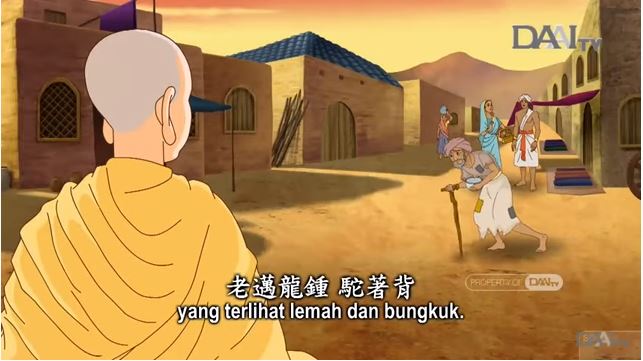
Every day, I think about how difficult it is for people to change their mindset. The Buddha expounded the Dharma in this world in order to remove the defilements of all sentient beings and to lead the wrong-minded back to right thoughts. This sounds really easy.
Doesn't removing mental defilements and guiding wrong thoughts back to right thoughts sound so simple? However, Buddha spent 49 years patiently guiding all beings.
In fact, how many sentient beings can understand the Buddha's heart, accept the Buddha's teachings, and improve themselves? Buddhism aims to purify our hearts. However, after being purified, our hearts are quickly re-polluted. This really makes people helpless.
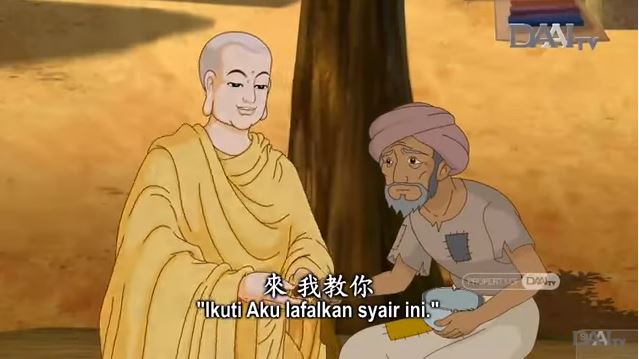
As ordinary beings, we often forget things. Buddha is like a cleaner. He brushed and rinsed the dirty. If it is not clean, He will go back to brushing and rinsing with water. If it is still not clean, He will do it again. So, for the same stain, He cleaned it repeatedly with water.
Buddha taught us to return to our true nature. What is our true nature? Human nature is virtuous. However, guiding people to return to this wholesome nature is very difficult.
Every day, you see elderly people in the hospital. If we ask if they have children, they will answer that they have. Do their children see them? Not. Because of that, they were very gloomy.
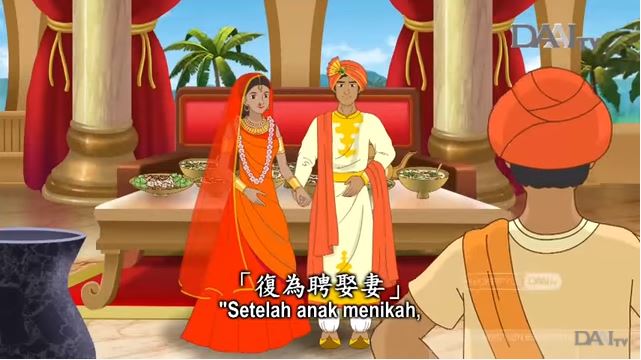
People say, filial piety is the root of all virtues. If someone makes a mistake, it's not necessarily the case that other people know it. However, if one disobeys one's parents, people will know about it.
One day, on the road, Buddha saw an old man who looked weak and stooped. He was resting on a stick and had difficulty walking. With a bowl, he was begging everywhere.
On seeing him, the Buddha asked him, "You are old, why don't you stay at home? Don't you have a son?"
He said, "I have a son."
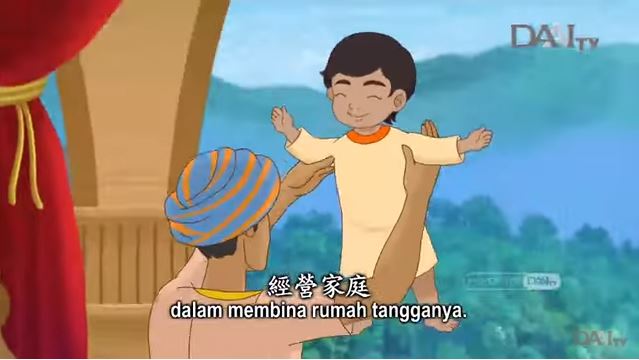
The Buddha said, "Then why are you still begging on the street even though it is difficult to walk?"
He said, "I have a son, I also have a house. I have all these things, but my son is very disobedient. After getting married, he threw out this old me."
Hearing his story, Buddha felt very sorry for him. Therefore, He said, "Follow me recite this verse. Recite this verse every day, no matter where you beg."
He said, "What's in it?"
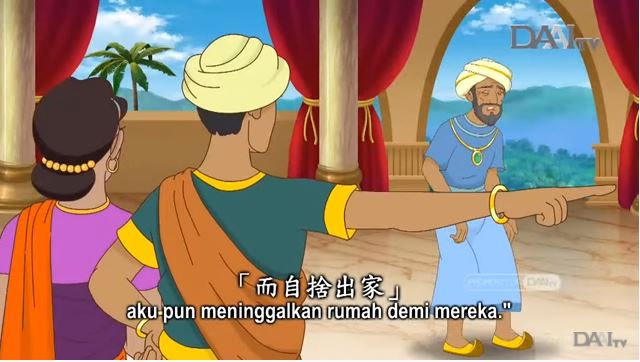
The Buddha said, "Listen and memorize carefully. Rejoice in having a child and accumulating wealth for his sake. After the children married, I also left the house for their sake." That is, this old man was kicked out by his son so he had to leave his house.
"I gave him a lot of treasure, but he treated me badly instead." This old man was able to achieve success because all his life, he was serious about building his household. He owns the land and the house. He also helped his son get married. When his son married, he was very happy and gave his son many treasures, including land. However, after he grew old, his son disobeyed him and threw him out of the house. His son no longer loved him.
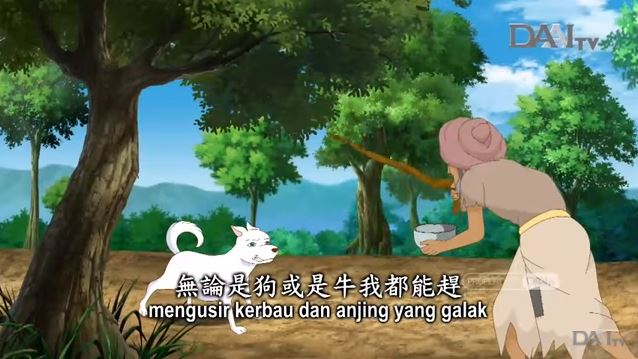
"Like having the heart of a giant, my son ignores his parents." His son has the form of a human, but has the heart of a giant. He ignored his aging and most precious father and threw him out.
"My young son makes his old father beg from house to house." The son is still very young, but the elderly father has to beg to survive.
"This stick is more reliable." His wand was even more useful than his son.
"It's not like my son left me." The wand was not like his son moving away from him.
"He protected me from fierce buffalo and dangerous places." They can be used to ward off fierce buffalo and dogs and protect them in dangerous places.
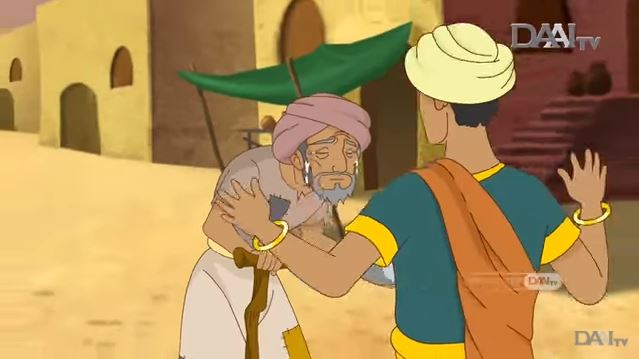
"He can protect me from fierce dogs and be my pedestal to walk in the dark." The cane can be a pedestal to walk in the dark.
That's what this old man recited while begging on the street and the whole village was talking about it.
When he heard this, his son felt ashamed and introspected because he had done something that violated his conscience. So, he immediately picked up his father.
After arriving home, he immediately helped his father take a bath, give birth, and so on. He is devoted to his father to correct his mistakes all this time. He was raised from childhood by his father, but after marriage, he suddenly did things that violated his conscience and disobeyed his father.
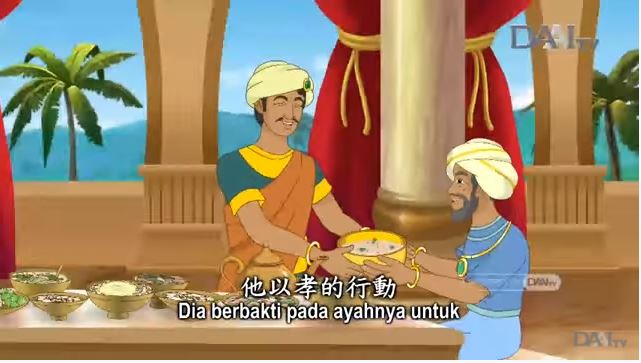
However, after people found out about this and continued to talk about it, he did some introspection. So, he still has shame and can improve himself by taking his father home and serving his father.
If we make a mistake, we must correct it. Otherwise, we will always do things that violate our conscience. The greatest punishment is remorse which causes concern for oneself as well as for others. Why should we let that happen? That's why Buddha taught us to open one by one the knots of our mind.
Making mistakes is not worrying, what is worrying is refusing to change. That's why people say we have to act according to our conscience. True, we must awaken the conscience.
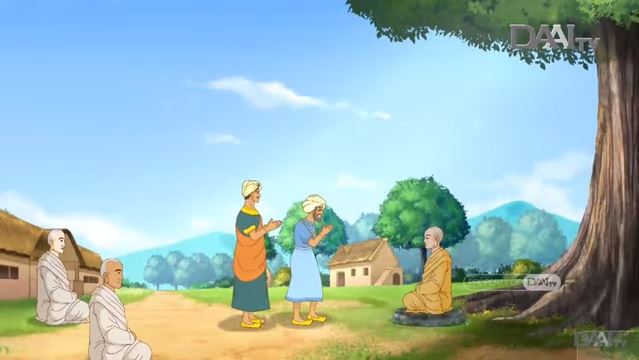
If a person covers his conscience and thinks that as long as other people don't know, he can play against other people or secretly do other bad things, then he is shameless. Since you don't feel ashamed, you can't repent. If we are reluctant to admit fault because we think that no one is listening or seeing, we will arouse mental taints.
In short, don't think that it's okay to make mistakes as long as no one sees it. When someone sees it, don't think, "I'm just like this." This will seriously damage our self-cultivation and virtue.
Source: Master Tells Stories (DAAI TV)
Translator: Indah Melati (Tzu Chi Volunteers)








 Sitemap
Sitemap